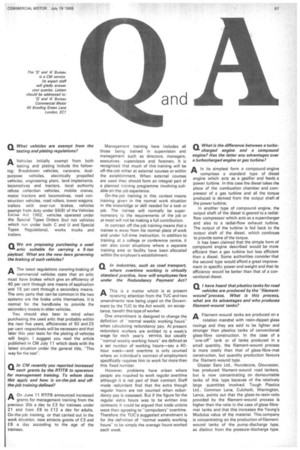a in industries, such as road transport, where overtime working is
Page 69

If you've noticed an error in this article please click here to report it so we can fix it.
virtually standard practice, how will employees fare under the Redundancy Payment Act?
A This is a matter which is at present
receiving attention from the TUC and two amendments now being urged on the Government by the TUC to the Act would, on acceptance, benefit this type of worker.
One amendment is designed to change the definition of "normal weekly working hours" when calculating redundancy pay. At present redundant workers are entitled to a week's wage for each year's service, but usually -normal weekly working hours" are defined as a set number of working hours—say a 40hour week—and overtime is only counted where an individual's contract of employment specifically requires him to work for more than this fixed number.
However, problems have arisen where people are required to work regular overtime although it is not part of their contract. Staff made redundant find that the extra though regular hours are not counted when redundancy pay is assessed. But if the figure for the regular extra hours was to be written into contracts it could be argued that trade unions were then agreeing to "compulsory" overtime. Therefore the TUC's suggested amendment is for the definition of "normal weekly working hours" to be simply the average hours worked each week




















































































































